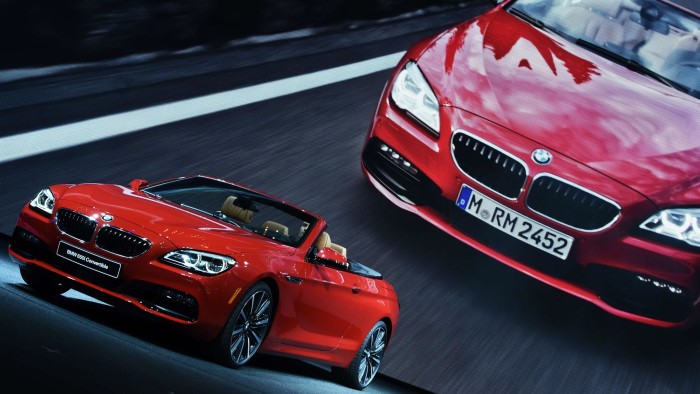BMW sounds alarm over tech companies seeking connected car data

Simply sign up to the US & Canadian companies myFT Digest -- delivered directly to your inbox.
Technology companies and advertisers are putting pressure on carmakers to pass on data collected by connected cars, BMW has warned, highlighting the concerns the automotive industry faces as it treads a fine line between performance and privacy.
Ian Robertson, the German manufacturer’s board member for sales and marketing, said that every car rolling off its production lines had a wireless network that could yield information about location, speed, acceleration and even the occupants of the car.
“There’s plenty of people out there saying: ‘give us all the data you’ve got and we can tell you what we can do with it’,” he told the Financial Times on the sidelines of the Detroit motor show, adding that this included “Silicon Valley” companies, as well as advertising groups. “And we’re saying: ‘No thank you’.”
About two-thirds of today’s new cars have sensors and communications systems that send and receive data, offering potential for carmakers to find out more about how drivers use their vehicles. But the systems could also provide insurers and advertisers with personal information about customers.
BMW said it had a firewall in place to protect crucial data about the internal running of the car. But any transmission of data raises concerns about who might access that information — and what they might do with it.
Adam Jonas, analyst at Morgan Stanley, said it was a “major issue” for carmakers, which “ unanimously want to create a barrier on this information”. He said: “They don’t want to be the first one to let [their] guard down on information privacy or to become the first company to have a car hacked with bad consequences and image.”
Ford was forced into an embarrassing retraction at last year’s Consumer Electronics Show in Las Vegas after Jim Farley, then head of marketing at the US carmaker, said: “We know everyone who breaks the law. We know exactly when you do it because we have a GPS sensor in your car.” He added: “By the way, we don’t supply that data to anyone.”
In depth

News, commentary and analysis from this year’s event — the largest and most important annual showcase for US carmakers
Further reading
Mr Farley later clarified that the company did not track anyone without their permission.
The scale of the data collected by modern vehicles goes beyond how fast or far cars have driven. In an illustration of the potential data that could be surrendered by carmakers, Mr Robertson said that BMW cars knew whether a child was on board, based on weight sensors in the seats linked to the airbag system.
“Several companies have said: ‘We’d like to know that data because then we will know whether it’s an adult or a child sitting in the car’,” said Mr Robertson.
He said that advertisers also wanted to know how long the engine has been running so that they could tell “from the navigation system, they’re about to pass a McDonald’s, the car’s been running for three hours and the child’s probably hungry”.

——————————————-
Letter in response to this report:
A hungry child can spot those Golden Arches / From Ian De Freitas
Comments